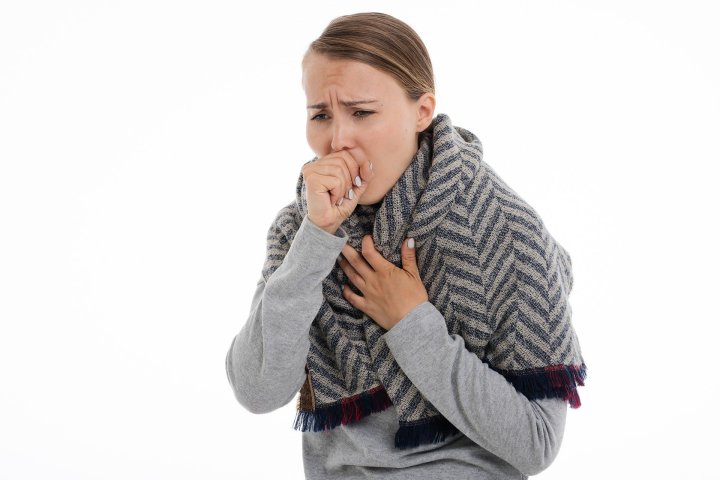
We’re living in stressful times. At the moment, life feels like we’re all actors in the opening scenes of an apocalyptic film. Except it’s real.
I’ve returned to my blog after an embarrassingly long absence because my daughter is away from home and experiencing symptoms of COVID-19. As a mum, I hate being unable to hug, nurse, and care for her. So, feeling helpless, I did what I could do and researched ways of reducing the risk of having a severe infection.
With coronavirus, people around the country are having to self-isolate and self-care- but there’s not much guidance on self-help. Just rest, drink, and hope for the best. However, some things could help you recover from COVID-19.
I found an interesting review from The New England Complex Systems Institute on how to improve respiratory health and improve COVID-19 outcomes[1]. I’ve summarised it, together with other ways of boosting your immunity:
How to help yourself if you have coronavirus symptoms

Coronavirus is a novel virus that our bodies aren’t used to facing and fighting. There’s currently no cure, but anything that we can do to improve health, wellbeing, and immunity can better equip you to overcome the infection:
Don’t wallow in your virus
When you’re feeling ill, it’s tempting to forget about hygiene. However, good ventilation and keeping your environment clean will stop you from being re-exposed to viral particles, which could infect parts of the lungs that aren’t already affected. Opening a window, showering, washing hands, and changing your sheets will all help get rid of the virus from your surroundings.

Open a window
Try and encourage outward airflow to clear virus and bring in fresh air.
Breathe through your nose
The nose is an effective air cleanser. The tiny hairs and mucous membranes act as a shield against disease. The nose also warms and moistens air making it more comfortable to breathe.
Breathe deeply
Try and practise deep breathing several times a day. It helps improve outcomes in lots of lung conditions, and although it’s too early to have definitive research for people with COVID-19, it makes sense to keep the air moving throughout as much of the lungs as possible.
Most of us only use a fraction of our lung capacity; breathing deeply can stop virus stagnating in parts of the lungs. If it hurts to breathe deeply, supporting any tender areas with your hand can help. This video from team members from ITU at Queen’s University Hospital, Belfast gives useful advice on breathing exercises:
Get moving
Physical fitness can help boost your immunity and protect you from infection. That’s why the government has encouraged us all to be active once a day during the lockdown. However, moderate daily exercise can also help in the early or mild stages of coronavirus infection. Exercise improves lung ventilation and may support immune function.
If you can, get outside and walk, jog or dance. I know that’s tricky if you don’t have a garden and need to stay two metres away from other people. If you’re in a small space, try star jumps or jogging on the spot on a balcony or near an open window. Let your body be your guide, and don’t push it if you’re feeling weak, dizzy, or unwell.
Temperature control?
Paracetamol can control fever and help you feel better. However, if you’re feeling OK and your temperature is under safe limits (at 39.4 C according to The Mayo Clinic), it may be better to live with the fever. Raising your core temperature is one of your body’s ways of fighting an infection[2]. If you may have coronavirus infection, it’s not advisable to take non-steroidal anti-inflammatory medications like ibuprofen. They dampen the body’s inflammatory response, which may be essential for battling the virus.
Feed a fever?
No superfood or supplement will prevent coronavirus infection. However, a healthy diet can support your immune system and help you fight the disease. Low levels of Vitamin D are linked to a reduced immune response. Our bodies can make it in sunlight, but dull weather and being socially isolated indoors can mean that lots of us lack this essential micronutrient, so it may be worth taking a supplement daily.
There’s evidence that vitamin C supplements can improve recovery from the common cold, some strains of which are caused by a type of coronavirus. It’s not clear whether supplementation will affect COVID-19, but I’ve sent my daughter supplies of vitamins C and D, just in case! The British Nutrition Foundation advocates a good multivitamin and mineral supplement, find out more on their website.
Stay hydrated
The social media rumour mill has been errr…awash (sorry) with advice to keep sipping water to stop coronavirus, getting a grip. Professor Trudie Lang at the University of Oxford told the BBC that you couldn’t wash a respiratory virus away by drinking fluids. However, drinking water and staying hydrated is vital for your general health and wellbeing[3]. Drinking enough is particularly important if you’re feverish and unwell, when you may lose fluid and electrolytes from increased sweating.
Rest and recovery
Sleep is your body’s opportunity to rest and repair damaged cells. Sleep is also critical for the healthy function of the immune system[4].So, getting adequate sleep is a vital part of your armoury against the infection.

It can be tricky when you’re housebound, and your usual routines are disturbed by lockdown. Your body has a natural clock that helps you sleep at night and wake in the morning. Try and make use of this by going to sleep and getting up at a similar time every day, so your body knows what to expect. Cut down on caffeine and other stimulants and limit screen-time, the light from devices has higher levels of blue light, which affects the release of the sleep-inducing hormone melatonin.
Hopefully, staying home, stopping unnecessary travel, and practising social distancing will keep many people safe from this new virus. These self-care tips are no substitute for prevention.
If you do develop a fever, a new continuous cough, difficulty breathing, or you’ve lost your sense of smell (which ENT surgeons are flagging as a potential symptom), do not leave your home. To protect others, do not go to places like a GP surgery, pharmacy, or hospital.
The 111 online coronavirus service will help you find out what to do and how to access medical help if needed, and hopefully, these tips may help some people ( including my daughter) have a less severe illness.
[1] Blake Elias, Chen Shen and Yaneer Bar-Yam, Respiratory health for better COVID-19 outcomes, New England Complex Systems Institute (March 16, 2020).
[2] Sharon S Evans, Elizabeth A Repasky, and Daniel T Fisher. Fever and the thermal regulation of immunity: the immune system feels the heat. Nature Reviews Immunology, 15(6):335–349, 2015.
[3] https://www.bbc.co.uk/news/world-51735367
[4] https://www.health24.com/Medical/Infectious-diseases/Coronavirus/heres-how-quality-sleep-can-help-you-fight-the-new-coronavirus-20200316-2

This is great Jane thank you and thanks again so much for the chat. He’s going to go in tomorrow xxx
Sent from my iPhone
>
LikeLike
Thanks Jane. Your advise and help via Julie has been really appreciated this last week or so. Thank you. Anne (Julie’s sister)
LikeLike
So glad to hear that Dave is making good progress. Love to you both X
LikeLike